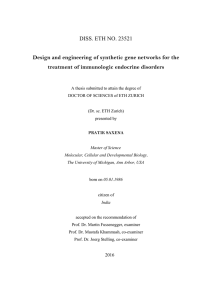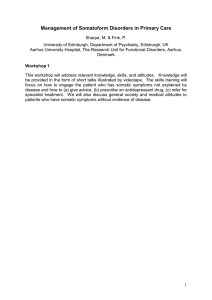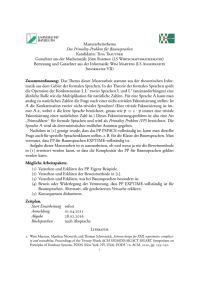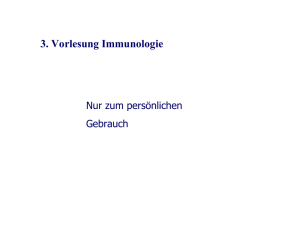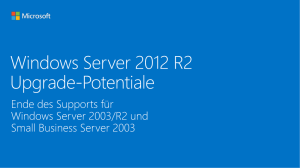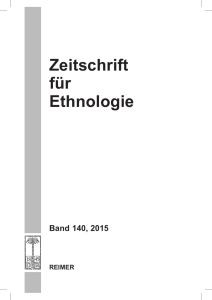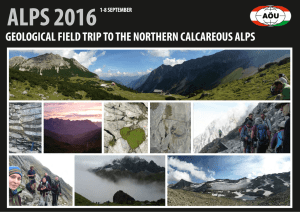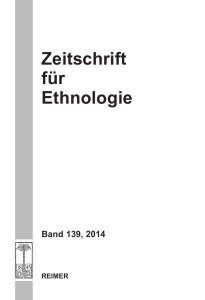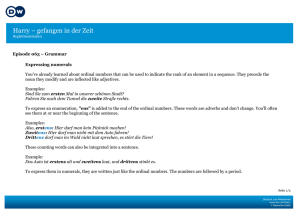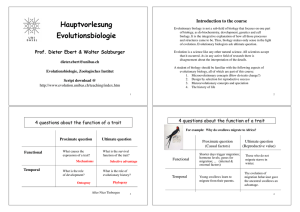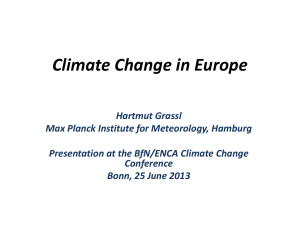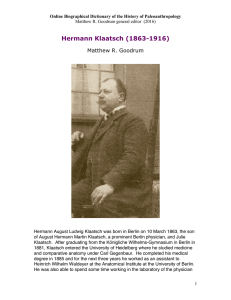Haflidi Hallgrímsson - Peter Sheppard Skærved
Werbung
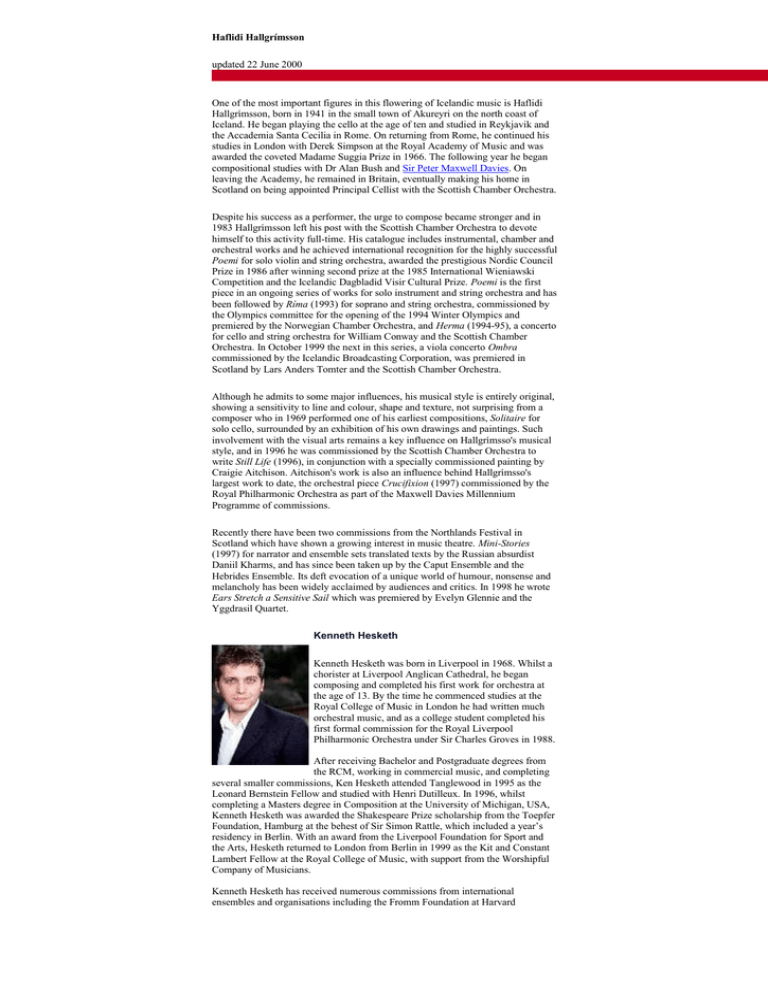
Haflidi Hallgrímsson updated 22 June 2000 One of the most important figures in this flowering of Icelandic music is Haflidi Hallgrímsson, born in 1941 in the small town of Akureyri on the north coast of Iceland. He began playing the cello at the age of ten and studied in Reykjavik and the Accademia Santa Cecilia in Rome. On returning from Rome, he continued his studies in London with Derek Simpson at the Royal Academy of Music and was awarded the coveted Madame Suggia Prize in 1966. The following year he began compositional studies with Dr Alan Bush and Sir Peter Maxwell Davies. On leaving the Academy, he remained in Britain, eventually making his home in Scotland on being appointed Principal Cellist with the Scottish Chamber Orchestra. Despite his success as a performer, the urge to compose became stronger and in 1983 Hallgrímsson left his post with the Scottish Chamber Orchestra to devote himself to this activity full-time. His catalogue includes instrumental, chamber and orchestral works and he achieved international recognition for the highly successful Poemi for solo violin and string orchestra, awarded the prestigious Nordic Council Prize in 1986 after winning second prize at the 1985 International Wieniawski Competition and the Icelandic Dagbladid Visir Cultural Prize. Poemi is the first piece in an ongoing series of works for solo instrument and string orchestra and has been followed by Ríma (1993) for soprano and string orchestra, commissioned by the Olympics committee for the opening of the 1994 Winter Olympics and premiered by the Norwegian Chamber Orchestra, and Herma (1994-95), a concerto for cello and string orchestra for William Conway and the Scottish Chamber Orchestra. In October 1999 the next in this series, a viola concerto Ombra commissioned by the Icelandic Broadcasting Corporation, was premiered in Scotland by Lars Anders Tomter and the Scottish Chamber Orchestra. Although he admits to some major influences, his musical style is entirely original, showing a sensitivity to line and colour, shape and texture, not surprising from a composer who in 1969 performed one of his earliest compositions, Solitaire for solo cello, surrounded by an exhibition of his own drawings and paintings. Such involvement with the visual arts remains a key influence on Hallgrímsso's musical style, and in 1996 he was commissioned by the Scottish Chamber Orchestra to write Still Life (1996), in conjunction with a specially commissioned painting by Craigie Aitchison. Aitchison's work is also an influence behind Hallgrímsso's largest work to date, the orchestral piece Crucifixion (1997) commissioned by the Royal Philharmonic Orchestra as part of the Maxwell Davies Millennium Programme of commissions. Recently there have been two commissions from the Northlands Festival in Scotland which have shown a growing interest in music theatre. Mini-Stories (1997) for narrator and ensemble sets translated texts by the Russian absurdist Daniil Kharms, and has since been taken up by the Caput Ensemble and the Hebrides Ensemble. Its deft evocation of a unique world of humour, nonsense and melancholy has been widely acclaimed by audiences and critics. In 1998 he wrote Ears Stretch a Sensitive Sail which was premiered by Evelyn Glennie and the Yggdrasil Quartet. Kenneth Hesketh Kenneth Hesketh was born in Liverpool in 1968. Whilst a chorister at Liverpool Anglican Cathedral, he began composing and completed his first work for orchestra at the age of 13. By the time he commenced studies at the Royal College of Music in London he had written much orchestral music, and as a college student completed his first formal commission for the Royal Liverpool Philharmonic Orchestra under Sir Charles Groves in 1988. After receiving Bachelor and Postgraduate degrees from the RCM, working in commercial music, and completing several smaller commissions, Ken Hesketh attended Tanglewood in 1995 as the Leonard Bernstein Fellow and studied with Henri Dutilleux. In 1996, whilst completing a Masters degree in Composition at the University of Michigan, USA, Kenneth Hesketh was awarded the Shakespeare Prize scholarship from the Toepfer Foundation, Hamburg at the behest of Sir Simon Rattle, which included a year’s residency in Berlin. With an award from the Liverpool Foundation for Sport and the Arts, Hesketh returned to London from Berlin in 1999 as the Kit and Constant Lambert Fellow at the Royal College of Music, with support from the Worshipful Company of Musicians. Kenneth Hesketh has received numerous commissions from international ensembles and organisations including the Fromm Foundation at Harvard University (Three Movements from "Theatrum"), the European City of Culture (Copenhagen 1996), the Continuum Ensemble Torturous Instruments, a Faber Millennium Commission for Simon Rattle and the Birmingham Contemporary Music Group, the BBC Philharmonic (At God speeded summer’s end), Hans Werner Henze and the Endymion Ensemble (in honour of Henze’s 75th birthday) Netsuke, the Munich Biennale, and the Michael Vyner Trust for the London Sinfonietta. Recent performances of Hesketh’s music have included the ASKO Ensemble (Amsterdam), the Ensemble Zagros (Helsinki), the Holland Symfonia (Amsterdam), the Tanglewood Festival of Contemporary Music and a composer portrait concert as part of the Munich Biennale. His debut at the BBC Proms, The Circling Canopy of Night, was performed by the London Sinfonietta conducted by Oliver Knussen in 2001. A festival of English music in Montreal in 2002 featured many of Hesketh’s works, as well as lectures and presentations by the composer. Hesketh is currently the Kettle’s Yard Fellow at Corpus Christi College, Cambridge where his duties include composition tuition as well as various outreach projects. He is also a lecturer in composition and orchestration at the Royal College of Music. Hesketh’s most recently completed London Sinfonietta commission, Polygon Window, is for the Ether Festival at the Royal Festival Hall in March 2004 touring throughout the UK thereafter. The University of York Music Press Sadie Harrison Biography | Works | Discography "A potent sense of instrumental colour, and very personal rhythmic vigour pervades all of her output, but it is also characterised by an uncompromising intellectual and constructional integrity. There are very few living composers with such a strong aural signature; which sometimes can hit the listener between the eyes with the same impact as Messiaen's 'purple' chords or the 'Byzantine' ferocity of late Tippett. Sadie often plays dangerous games with this architectural-colouristic interdependence; manipulating it, (much in the same way that Bach removes anticipated resolutions and consonances) in order to heighten the narrative tension of the structure." Peter Sheppard Skærved Biography "One of her gratifying qualities — not indispensable to a composer, but it helps — is that she likes sound." So wrote Paul Griffiths of Sadie Harrison's Architechtonia in The Times. A concern for the immediate sensory appeal of her materials is certainly a salient feature of Harrison's style. In this respect, her work shows an affinity with that of Pierre Boulez, a composer whose sound-world and compositional technique have been sources of inspiration for her. However, Harrison is representative of a generation of composers for whom neither the numerological arcana of integral serialism, nor the deliberately repetitive strategies of minimalism and other "post-modern" trends can provide satisfactory structural principles. Sadie Harrison was born in Adelaide, Australia in 1965. She graduated from the University of Surrey and continued her doctoral studies with Nicola Lefanu at King's College London. She has been awarded several prizes for her music including the Joyce Dixey Award for Composition, the Hilda Margaret Watts and Convocation Sesquicentennial Prizes for Music, and the Bernard Shorr ROSL Prize. Performances of her works, many of them international, have been given by Lontano (during her engagement as featured composer during 1988), London Chamber Symphony, Music Projects/London, Ixion, Bournemouth Sinfonietta, Gemini, also the Kreutzer Quartet, Double Image, Endymion Ensemble, Capricorn and the Composers Ensemble. She was lecturer in music at Goldsmiths College, London from 1993 — 2002. Taking Flight, the CD of Sadie Harrison's music released on Metier in 2001, received widespread acclaim: "Music of real individuality and purpose" HiFi News and Record Review; "... an original imagination that expresses itself in a fluent, thoughtfully poetic language." The Sunday Times. Her music has also been recorded recently on Sargasso and Clarinet Classics with a second chamber music CD of premiere recordings to be released by METIER in Spring 2002. Her music has been broadcast in Eastern Europe, on several stations in Canada, in Japan, The Netherlands and elsewhere. Highlights of 2002 included 3 major world premieres: The Light Garden at Carnegie Hall New York, The Fourteenth Terrace at the Purcell Room in London (also broadcast on Radio 3) and Bavad khair baqi! in Munich. Quintet: No Title Required was performed at the ISCM Festival in Hong Kong and Metier released a recording including No Title Required, Three Expositions and After Colonna. Sadie Harrison was Lecturer in Music at Goldsmiths College, London from 1993-2002 and now teaches composition at Bath Spa University. She has been commissioned to write a book on Alexandr Skryabin for the Life and Times Series, Haus Publications, and is preparing articles for MGG, Barenreiter Press. Sadie Harrison's music is also represented by the Australian Music Center. Biography | Works | Discography Biography David Matthews was born in London in 1943 and started composing at the age of sixteen. He read Classics at the University of Nottingham – which has also made him Honorary Doctor of Music – and afterwards studied composition privately with Anthony Milner. He was also much helped by the advice and encouragement of Nichol Maw. He spent three years as an assistant to Benjamin Britten at Aldeburgh in the late 1960’s. He has largely avoided teaching, but to support his composing career ha editorial work – he collaborated with Deryck Cooke on the performing version of Mahler’s Tenth Symphony – and orchestrations of film music. He has also written a the music of Michael Tippett, and has just completed a book on Britten which will be published in spring 2003. He published a lecture on the relation of music to paint Landscape into Sound, and reviews for various journals. Matthews is Music Advisor to the English Chamber Orchestra and Artistic Director of the Deal Festival. His widely played in Britain and abroad, is frequently broadcast, and over a dozen of his works are available on CD. His musical language on the one hand grew out of his English background and his special concern for the music of Tippett, Britten and Maw; but it is also strongly conne the central European tradition, back through Mahler and ultimately to Beethoven. Matthews has been much concerned with working in the great inherited forms of the symphony, string quartet, lately oratorio – and finding new ways of renewing them. To date he has written five symphonies and ten string quartets; also four symphoni – two of which; In the Dark Time and Chaconne, have recently been recorded by the BBC Symphony Orchestra for the NMC label. His numerous chamber works incl commissions by the Schubert Ensemble, Nash Ensemble, Brodsky Quartet, Brindisi Quartet and many others; vocal music includes a dramatic scena, Cantiga, for sopra orchestra, premiered at the 1988 Proms, and a large-scale Vespers for soloists, chorus and orchestra for the Huddersfield Choral Society. His recent large-scale work, C in Azzurro is a cello concerto for Steven Isserlis and the BBC National Orchestra of Wales and was premiered in October 2002 in Swansea with Richard Hickox. January 2003 Christopher Lyndon-Gee was nominated for a Grammy in 1998 for "Best Orchestral Performance" for the ground-breaking complete works of Igor Markevi (Marco Polo releases); while, in 2002, recordings for Naxos of 'Arcana' and other works by Edgard Varese with the Polish National Radio Symphony Orc won rave notices worldwide, such as "musically, Christopher Lyndon-Gee blows Boulez away . . . extraordinarily communicative musicianship" from New 'Classics Today', and " race out to buy the astounding Lyndon-Gee version . . . able to make these elements cohere with a strength and conviction that challenges the very best" from 'Repertoire', Paris. 'The Gramophone', 'Penguin Guide to Compact Discs', and 'Fanfare' have all given accolades to his w and Australian critics' organisations named him "Artist of the Year" and "Best Opera Conductor", the latter for his conducting of the world premiere of La Sitsky's 'The Golem' at Sydney Opera House. Also a widely performed composer, Lyndon-Gee was honoured as Composer Laureate of the Onassis Foundation, Athens, in 2001, has won the Adolf Spivakovsky Prize, the "Sounds Australian" Award (three times) and two MacDowell Fellowships in the USA. He is currently working on major orchestra including 'The Auschwitz Poems' and 'Socrates' Death', the latter commissioned for premiere at Canterbury Cathedral, in his native England, in 2004. Du 2003, his setting of an ancient Greek Ode under the title 'The Temple of Athena Pronaea' was premiered in New York, and 'On the Theory of Cosmic St the contemporary music festival in Odense, Denmark. Lyndon-Gee studied under Arthur Hutchings and Rudolf Schwartz in Great Britain; Franco Ferrara and Goffredo Petrassi at the Conservatorio S.Cecilia, R and Igor Markevitch at Monte Carlo. Hearing him conduct a student concert in Italy, Leonard Bernstein invited Lyndon-Gee to Tanglewood, where he me Maderna, becoming the latter's assistant in Milan. Erich Leinsdorf and Maurice Abravanel were also influential on his work. He enjoyed a busy early care pianist, specializing in contemporary repertoire; over two hundred new works were written specially for him. He and the prominent Italian composer Lore Ferrero launched the contemporary music ensemble 'Fase Seconda' in Turin; Lyndon-Gee also founded the Oxford Sinfonietta, and was chief conducto Telford Sinfonia, giving British premieres of composers as diverse as Boulez, Ligeti, Dallapiccola and Shapero, and commissioning and working closely British composers like Oliver Knussen, Nicola LeFanu, Jonathan Lloyd, Anthony Powers and David Bedford. Today, his hectic freelance career takes him regularly to orchestras in Germany, Italy, England, The Netherlands, Poland, Australia, New Zealand, Russia, the United States and several other count serves also as Head of the Conducting School at New York's Adelphi University, combining this with constant travel. Biographie Hans Werner Henze >English >Chronologie Hans Werner Henze, am 1. Juli 1926 in Westfalen geboren, erhielt seine früheste musikalische Ausbildung vor dem Hintergrund des aufkeimenden Nationalsozialismus in Deutschland; das Erlebnis, dass gerade die moderne Musik, Kunst und Literatur, die ihn am nachhaltigsten anregten, durch die Nationalsozialisten verfemt wurden, ließ in ihm den Glauben an das inhärent subversive Potential der Kunst wachsen eine Tendenz, die dreißig Jahre später sein kompositorisches Schaffen entscheidend prägen sollte.Nach dem Zweiten Weltkrieg setzte er seine Studien bei Wolfgang Fortner fort und komponierte die ersten Werke (die er als Bestandteil des Werkkatalogs anerkennt) in einem eleganten neo-klassizistischen Stil. Anregungen durch Hindemith und Strawinsky sind spürbar, jedoch zeigt sich bereits deutlich die lyrische Kraft, die Henzes Musik in allen Schaffensperioden auszeichnet. In den späten vierziger Jahren kam Henze in Kontakt mit den Darmstädter Ferienkursen und dem Konzept des Serialismus. Es ist jedoch bezeichnend für ihn, dass er sich nicht, wie viele seiner Zeitgenossen, von dieser Kompositionstechnik völlig vereinnahmen ließ, sondern sie mit seinem neo-klassizistischen Stil verwob. Das Violinkonzert von 1947 ist das erste Beispiel dieser kompositorischen Synthese, die sich auch in "Boulevard Solitude", seiner 1951 entstandenen ersten Oper, wiederfindet. 1953 verließ Henze Deutschland, um in Italien zu leben. Dieser Wechsel in einen anderen Kulturkreis verhalf seiner Musik zu neuem Ausdrucksreichtum und neuer Farbigkeit. Die Oper "König Hirsch" (1953-56) und die in den nächsten zehn Jahren entstandenen weiteren Opern - alle satellitengleich begleitet von einer Fülle weiterer Werke, die das Ergebnis stetig anwachsender Kompositionsaufträge waren - sind Stationen der Aneignung der neuen expressiven Klangwelten. "Elegie für junge Liebende" (1959-61) und "Die Bassariden" (1964/65), beide auf Libretti von W.H. Auden und Chester Kallman, gehören ebenso in diese Periode wie die Kantaten "Novae de infinito laudes" (1962) und "Being Beauteous" (1963). Mit den "Bassariden" erreichte Henze einen stilistischen Wendepunkt, und während der zweiten Hälfte der sechziger Jahre begann er nach Wegen zu suchen, seine neuen musikalischen Interessen mit seinem zunehmenden Engagement für radikale politische Ideen zu verknüpfen. In Kompositionen wie "Das Floß der Medusa" (1968), der "Sinfonia N. 6" (1969) und dem Rezital für Bariton und vier Musiker "El Cimarrón" (1969/70) zeigt sich eine neue Schroffheit im musikalischen Gestus, ein Zurückdrängen der lyrischen Mittel. In den frühen siebziger Jahren erreichte die musikalische Reflektion von Henzes politischem Engagement mit der Vollendung des Liedzyklus "Voices - Stimmen" (1973) und den 1976 an der Covent Garden Opera uraufgeführten Handlungen für Musik "We come to the River" (1974-76), auf ein Libretto von Edward Bond, ihren Höhepunkt. In der Folge wandte sich Henze wieder verstärkt traditionelleren Formen zu. In den späten siebziger und frühen achtziger Jahren entstanden drei Streichquartette und die Symphonie Nr. 7 (1983/84), so wie die Oper "The English Cat - Die englische Katze" (1980-83) auf ein satirisches Libretto wiederum von Edward Bond. Mit dem 1990 uraufgeführten Musikdrama "Das verratene Meer" (1986-89), nach dem Roman von Yukio Mishima kehrte er wieder zum durchkomponierten Opernstil der frühen sechziger Jahre zurück. Allerdings verrät die Partitur deutliche Einflüsse der Arbeit an Monteverdis Oper "Il ritorno d'Ulisse in patria", die Henze 1981 in einer freien Rekonstruktion bearbeitete. Anfang der neunziger Jahre wurde Henzes Schaffen von der Arbeit am Requiem (1990-92) bestimmt, das dem Andenken an Michael Vyner, dem früheren Direktor der London Sinfonietta, gewidmet ist. Diese Neun Geistlichen Konzerte für Klavier solo, konzertierende Trompete und großes Kammerorchester wurden 1993 erstmals komplett aufgeführt, im Jahr der Uraufführung der Sinfonia N. 8 durch das Boston Symphony Orchestra unter Leitung von Seiji Ozawa. Im Januar 1997 wurde "Venus und Adonis" an der Bayerischen Staatsoper uraufgeführt, und im November des gleichen Jahres spielten die Berliner Philharmoniker unter Ingo Metzmacher erstmals die Sinfonia N. 9. 1999 begann Henze die Arbeit an der Sinfonia N. 10, deren Uraufführung 2002 im Rahmen der Luzerner Festwochen durch Sir Simon Rattle erfolgte. Born in Westphalia in 1926, Henze received his earliest musical training against the background of the rise of Nazism in Germany; his realisation that all the modernist music, art and literature that stimulated him most profoundly had been condemned by the Nazis ingrained in him the belief in the potential of art to be genuinely subversive, inspiring a tendency that was to surface explicitly in his work thirty years later. After the Second World War he resumed his formal education by studying with Wolfgang Fortner, and composed the first pieces that he still acknowledges in an elegant neo-Classical style, which mingled Stravinsky and Hindemith while already demonstrating the innate lyrical gift that has characterised Henze's music in all its phases. In the late 1940s, however, he began to attend the Darmstadt summer schools and realised the value of serialism. But, typically, he did not follow many of his contemporaries in embracing the technique to the exclusion of all else, and instead fused it with his neo-Classical style. The Violin Concerto (1947) first put this synthesis into practice, and it served also for his first opera, "Boulevard Solitude". In 1953, Henze left Germany to live in Italy. The change of scenery brought a new richness and colour into his music, an expressive world that was celebrated in the opera "King Stag" (1955), and, over the following ten years, in a sequence of operas each with their attendant satellite works in response to a seemingly endless supply of commissions. "Elegy for Young Lovers" (1961) and "The Bassarids" (1965), both to librettos by W.H. Auden and Chester Kallman, belong to this period, as do the oratorio "Novae de infinito laudes" (1962) and the cantata "Being Beauteous" (1963). With "The Bassarids" Henze reached a stylistic turning-point, and during the second half of the 1960s he began to look for ways of combining his new musical interests with his increasing commitment to radical politics. Works such as "The Raft of the Medusa" (1968), the Sixth Symphony (1969) and the "recital" for baritone and instruments "El Cimarrón" (1970), show his music becoming more angular, and suppressing its lyrical style.The musical climax of Henze's explicit political engagement was reached in the early 1970s, with the completion of the eclectic song-cycle. "Voices" (1973) and the "actions for music" "We Come to the River", to a text by Edward Bond, first staged at Covent Garden in 1976. In its aftermath Henze turned to more traditional forms, producing three string quartets as well as his Seventh Symphony in the late 1970s and early 1980s; "The English Cat", again to a satirical libretto by Bond, was constructed as a "number opera" from a sequence of traditional closed forms. But with "Das verratene Meer", after a novel by Yukio Mishima, first performed in 1990, he returned to the through-composed music dramas of the early 1960s, though the score also betrays the influence on his work of Monteverdi's "Il ritorno d'Ulisse in patria", of which he made a sumptuous new realisation in 1981. In the early 1990s Henze's work was dominated by the composition of an instrumental Requiem, dedicated to the memory of Michael Vyner, the former director of the London Sinfonietta. These nine "spiritual concertos" were first performed complete in 1993, and that year also saw the premiere of his Eighth Symphony with the Boston Symphony Orchestra conducted by Seiji Ozawa. In January 1997 the Bavarian State Opera gave the premiere of "Venus and Adonis", and in November of the same year the Berlin Philharmonic introduced his Ninth Symphony conducted by Ingo Metzmacher. In 1999, he composed his Tenth Symphony which has been given its world première at the Lucerne Festival (Switzerland) in 2002, by Sir Simon Rattle. Paul Archbold Paul Archbold was born near Peterlee in the North East of England in 1964, studied composition at the Royal University of Durham. His compositions have been performed by several of the leading exponents of contemporary music in the Un the Royal Scottish National Orchestra and have been broadcast in Australia, Finland, Norway, Germany and He has held lectureships at the universities of Huddersfield and Durham and has been active in promoting co Wind-Up: chamber music by Paul Archbold and Fabrice Fitch, was issued on the METIER label to enthusia Choice for 2000. Recent works include: Arachne for clarinet and harp, Recoil for piano and tape, Impacts and Fractures for str
